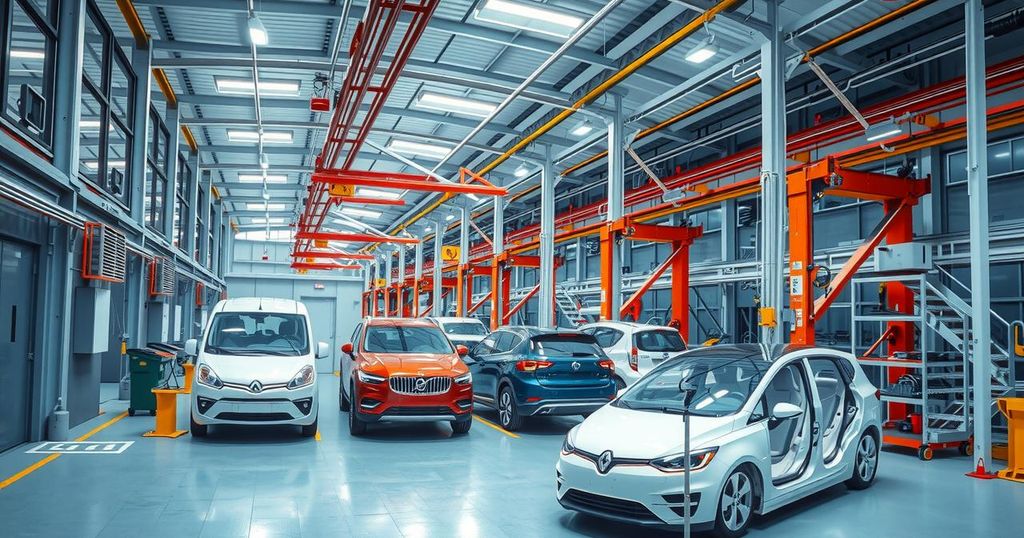BYD Factory Construction in Brazil Halted Due to Alleged Forced Labor Conditions
Construction for a BYD electric vehicle factory in Brazil was halted after authorities discovered 163 Chinese workers in poor conditions classified as ‘slave-like.’ The Brazilian subsidiary has terminated its contract with the construction firm responsible and initiated measures to rectify the violations, including relocating workers to hotels.
The Brazilian construction of a factory for the Chinese electric vehicle manufacturer BYD has been halted due to serious allegations of forced labor conditions affecting over 160 Chinese workers. These laborers, employed by Jinjiang Construction Brazil Ltd., faced harsh working environments that the local officials characterized as resembling slavery. This facility, meant to serve as BYD’s largest electric vehicle production site outside China, is located in Camacari, Bahia, and was anticipated to manufacture up to 150,000 vehicles annually.
Subsequent to inspections carried out by Bahia’s Public Ministry for Works (MPT) since November, numerous violations were reported, leading to an alarming assessment of the precarious living and working conditions of the laborers. The workers were reportedly deprived of basic necessities, such as proper sleeping arrangements and hygiene facilities, and faced harsh environmental exposure during their labor. In response, BYD’s Brazilian subsidiary has severed ties with Jinjiang Construction and relocated the affected workers to hotels in the vicinity, asserting its commitment to comply with Brazilian labor laws and human rights standards.
The Brazilian authorities are preparing to host an online hearing to allow BYD and Jinjiang Construction an opportunity to present plans for rectifying these violations and improving labor conditions at the site. The situation raises significant concerns regarding labor practices within international construction projects and highlights the importance of ethical standards in global business operations.
The situation regarding BYD’s factory construction reflects broader issues of labor rights within international business practices, particularly in regards to the treatment of migrant workers. The involvement of over 160 Chinese nationals in adverse working conditions emphasizes the need for stringent oversight and enforcement of labor laws by companies operating abroad. BYD’s anticipated factory in Brazil was set to mark the company’s significant expansion into the global electric vehicle market. Reports like these raise questions about ethical labor practices in the supply chain of major corporations, forcing stakeholders to reckon with the implications of their operational choices.
In summary, the construction halt for BYD’s Brazilian factory due to allegations of forced labor conditions underscores critical violations of worker rights. The actions taken by local authorities and BYD’s response indicate the seriousness of the situation and the necessity for immediate corrective measures. As the company aims to enhance its ethical stance, the broader implications of this incident necessitate vigilant monitoring of labor practices within international corporate frameworks.
Original Source: www.abc.net.au




Post Comment